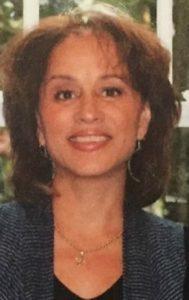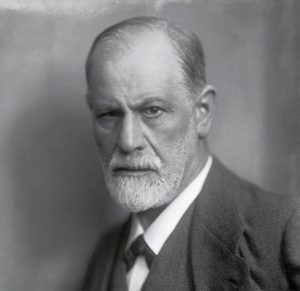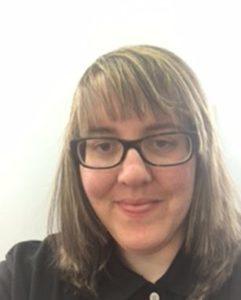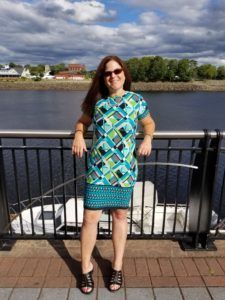What were the professors up to this summer? For some it’s work-as-usual, and others have exciting projects that they’re working on. What else do professors do when they’re not teaching? We talked to three of our faculty members at Post.
Who is Elsa Jones?
 Elsa Jones started off her career as a Head Teacher and Center Director for a Head Start program in Shaker Heights, Ohio back in 1985 where she taught 36 preschool children every day. Eighteen in the morning and eighteen in the afternoon!
Elsa Jones started off her career as a Head Teacher and Center Director for a Head Start program in Shaker Heights, Ohio back in 1985 where she taught 36 preschool children every day. Eighteen in the morning and eighteen in the afternoon!
“I was the lead teacher, prepared all the curriculum, assessed children, conducted home visits and conferences with families, as well as field trips.”
Since 1986 she has served as an independent Early Childhood Education (ECE) consultant.
Over the past six years at Post University, Jones has helped to manage the ECE Associate’s and Child Studies Bachelor’s programs in the roles of Assistant, Associate, and Program Chair. She has taught nine of the seventeen courses that are offered in the Child Studies program. Of course, there are a few that stand out as favorites.
She enjoys teaching CHS 111 Foundations of Early Childhood Education, the introductory course for both degree programs. She created the CHS236 Home, School and Community course.
“Families are their children’s first teachers; the community they live in must be understood; and every child is unique and different.”
These two courses require students to “think about their own upbringing, their own families and cultures, their communities, and how your culture impacts who you are and what you do in life,” said Jones.
Another favorite course that Jones teaches is CHS330 Environment for Play.
“For young children, play is the best way that they learn. A lot of times parents will ask their children ‘What did you do at school today? What did you do in preschool?’ and they say ‘We played’. Often parents think their children should be doing worksheets and things like that but it’s not developmentally appropriate for young children.”
What was Jones doing this summer?
In March, Jones and the rest of her department applied for additional accreditation of both degree programs. Jones, Marie Russell, and Dr. Jessica Pawlik-York completed a year-long self-study report. Now they’re working on preparing for the October site visit and making sure all of their documentation is ready to review.
“We’re creating portfolios and preparing our office not only as a space where we work but also as a welcoming ECE library where we provide resources for our students as well as our faculty.”
“Obtaining additional accreditation will strengthen our ECE and Child Studies degree programs. It will signify that we have successfully demonstrated evidence of excellence by meeting the accreditation standards. It will validate Post University’s commitment to high-quality professional preparation of early childhood practitioners and recognize us as a leading institution in the country,” explained Jones.
What else is Jones involved in?
“Currently, I am a member of the Assessment Committee. I served on the Curriculum Committee for several years. I have worked with the Women’s Leadership Program.”
Jones hopes that in the future they will be able to start something special with the ECE and Child Studies students, “maybe some kind of a community support and activism group; students could conduct different projects.”
Outside of the university, Jones serves on the Boards for the Connecticut Association for the Education of Young Children (CT AEYC) and the New Haven LULAC Early Head Start/Head Start Program. Post will be hosting the “CT AEYC Saturday Academy” on campus in February 2019 for ECE practitioners from across the state. Jones explained that two workshops are being planned.
What does Jones do for fun?
“I love to travel. Last summer, I went to Italy with my sister, her family and my daughter. I’ve experienced the Kentucky Derby twice now. My parents are from Kentucky, so I always grew up going there for the summer but I’d never been to the derby until last year.”
She also recently returned from a trip to Wisconsin Dells with her other sister’s family.
Besides teaching classes at Post, Jones is a Zumba instructor.
“At one point I was teaching four classes a week. I’m licensed in basic, toning, and aqua Zumba.”
“Post University is a great place to work!” Jones truly enjoys the opportunity to inspire, teach and celebrate learners of all ages and diverse backgrounds.
________________________________________________________________________
 Which professor’s great-grandfather was one of Sigmund Freud’s early students? It’s Lisa Chervenak, the associate program chair of the psychology program at Post, who literally has psychology in her blood. Chervenak teaches a wide range of courses, ranging from Psychology 101 all the way to Social Psychology and the Research Capstone. While all of these courses are available online and on campus, Chervenak generally teaches the main campus courses, though she will occasional teach the Psychology 101 online.
Which professor’s great-grandfather was one of Sigmund Freud’s early students? It’s Lisa Chervenak, the associate program chair of the psychology program at Post, who literally has psychology in her blood. Chervenak teaches a wide range of courses, ranging from Psychology 101 all the way to Social Psychology and the Research Capstone. While all of these courses are available online and on campus, Chervenak generally teaches the main campus courses, though she will occasional teach the Psychology 101 online.
Chervenak has lived in Fairfield, CT for her whole life. She started her teaching career as an adjunct professor at Lincoln College of New England. “My supervisor saw an ad for the job here at Post University, and thought I would make a good fit, and well here I am.” In August, she celebrated her fifth anniversary with the University.
What have you been working on this summer?
In a field that’s constantly changing and making new discoveries, it’s vital that professors keep their courses up-to-date, so that’s exactly what Chervenak and her colleagues have been doing this summer.
“Summer normally is a time for me and my supervisor, Dr. Renata Streck, to revise our online courses to incorporate new information, especially if there’s any new research. For example, in a course like Abnormal Psychology where there’s a lot of new research going on about treatments for mental disorders or diagnostic criteria. We are updating those courses so they’re current with what’s going on in the field. A majority of my time this summer is just going through all the different courses that we teach and revising them so that, not only do they meet our outcomes but it allows the students to keep current with what’s going on in the field.”
incorporate new information, especially if there’s any new research. For example, in a course like Abnormal Psychology where there’s a lot of new research going on about treatments for mental disorders or diagnostic criteria. We are updating those courses so they’re current with what’s going on in the field. A majority of my time this summer is just going through all the different courses that we teach and revising them so that, not only do they meet our outcomes but it allows the students to keep current with what’s going on in the field.”
What’s your favorite part of working at Post?
“I really enjoy working with the students, because I teach everything from psychology 101, which is the first course you take as a psychology major, and then research capstone, which is the last course that you take as a psychology student, which is really nice because I get to see my students grow in the four years. It makes me proud, almost like a proud mom, to see how far they’ve come, their interests develop, or they’re fulfilling their goals that they wanted to achieve when they started. They’re finally seeing those dreams come true.”
Chervenak speaks very fondly of the students she’s seen go through her program, and she always enjoys hearing about what students are doing after they’ve graduated. “I have a lot of students that I’ve seen complete the program and then come back either for more education or to let me know how life is going.”
What do you do for fun?
“I love to read up on Ancient Egypt. I would say that I’m as fascinated by Ancient Egypt as I am about psychology. Not many people know  this, but the Ancient Egyptians were the first to study nature vs. nurture which is something that we teach in psychology.” Chervenak also enjoys the theater, she recently saw a production of One Flew Over the Cuckoo’s Nest that was directed by one of Chervenak’s Post colleagues, Lucia Dressel.
this, but the Ancient Egyptians were the first to study nature vs. nurture which is something that we teach in psychology.” Chervenak also enjoys the theater, she recently saw a production of One Flew Over the Cuckoo’s Nest that was directed by one of Chervenak’s Post colleagues, Lucia Dressel.
Not everything Chervenak does for fun is psychology related though—she also recently saw a production of SpongeBob Squarepants and she frequents the trails at Hop Brook. She tries to go for a walk every day, weather permitting. “I absolutely love to observe nature, the exercise, and it’s just beautiful there.”
_______________________________________________________________________________
We wanted to know how the summers are different for remote professors, so we asked Sara Thompson, the program chair of the Masters of Science in Counseling and Human Services (MSHSV) program. Thompson often teaches Family Systems Theory (HSV521) and she runs the MSHSV mentoring program. Thompson works remotely from South Carolina and has seen the program from many different angles, since she started as a student at Post and worked her way up to professor, and then eventually program chair.
What were you working on this summer?
 “Most of the work week is business as usual, teaching, our courses run every eight weeks so we still teach throughout the summer,” and, like most of the other professors and program chairs, Thompson has to revise courses during the summer to ensure that they are all up to date. The program Thompson teaches is exclusively online. She also manages the practicum and internship courses in her program, which also run during the summertime.
“Most of the work week is business as usual, teaching, our courses run every eight weeks so we still teach throughout the summer,” and, like most of the other professors and program chairs, Thompson has to revise courses during the summer to ensure that they are all up to date. The program Thompson teaches is exclusively online. She also manages the practicum and internship courses in her program, which also run during the summertime.
This doesn’t mean that she’s not working on anything special though, Thompson is involved with a few university-wide initiatives.
“One I’m working on is number 1.3, for identifying emotions that we want our associates to experience positively within the workplace. I’m also involved in another initiative that is working to bring online students, and make them feel connected to the university, versus only being an online student and not having typical face-to-face interaction.”
How is working remotely different from working on campus?
For Thompson, there isn’t a huge difference between working on campus and working remotely—since her program is exclusively online she can do everything that she would do on campus remotely.
“I have always worked remotely; I worked one semester on campus. I feel very connected to the university because of the individuals I work with directly, we know who each other are, we’ve met, and we see each other on campus. Everything that I could do on campus, I can do from my office in South Carolina, I interact with students, whether it’s a phone call, email, or a skype meeting. I’m a big user of Blackboard Collaborate. I work the same way with colleagues, it’s like I have a cubicle on campus, which I do when I come to Connecticut. When I’m on campus, I make a point to visit specific people that I work with throughout the academic year just to say hi.”
How has the program changed in your time here?
Thompson has been with Post for about nine years, and she’s really experienced her program from all different angles. She started as a student in the program. Later on became associate faculty, then was hired full time, and then became the program chair.
“We’ve had many positive changes in our program. One with the word counseling being added to our program name, we have new courses, concentrations are different, putting myself back in the perspective of a student, right now the culture of making all our students feel important and that this is their time, has definitely been a positive change for us. Our curriculum is up to date and offers students the ability if they are looking for licenser; we have all the tools for them to be able to do that.”
What’s a fun fact not many people know about you?
“I ran a seven-mile race, was pushed down by a competitor, and still placed first out of 700 runners.”
When asked about her favorite part of Post, Thompson replied “our students and the sense of pride and family.” Thompson has been at Post for about nine years.
